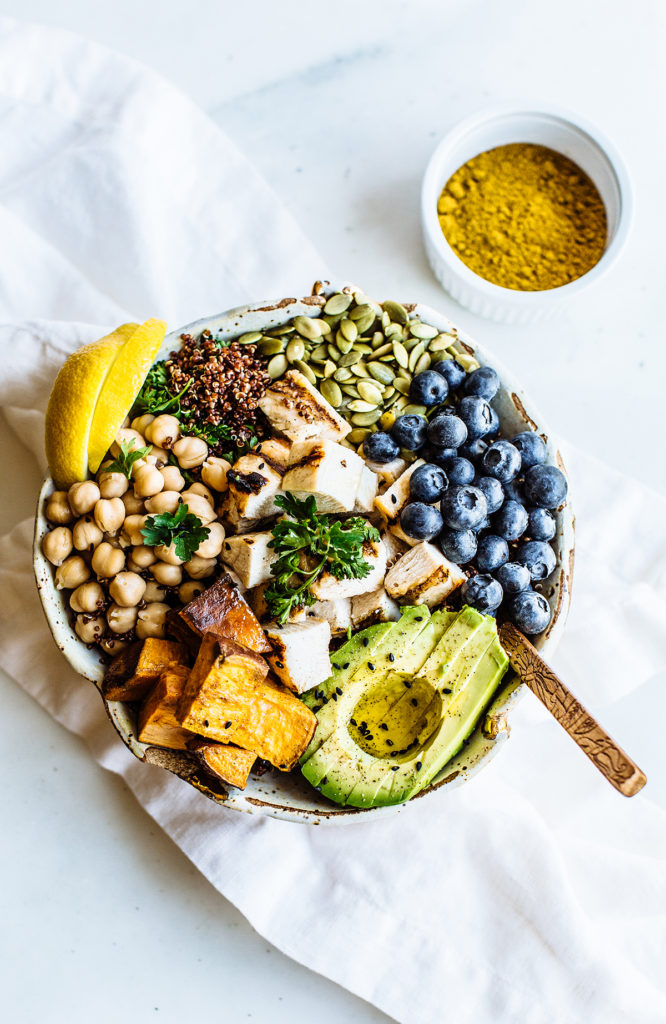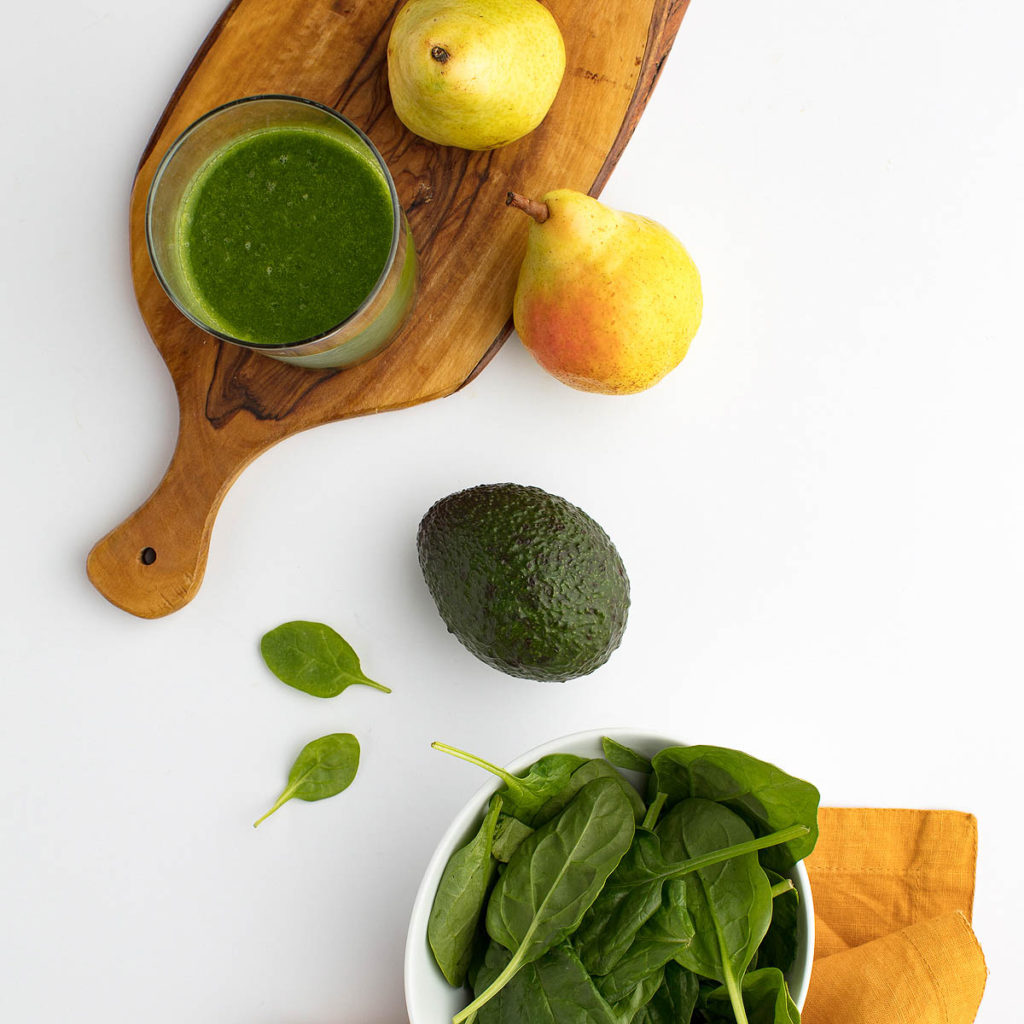News Details
I’m a Dietitian and Here’s the Best Diet for Gut Health
- Ann
- September 23rd, 2021
As we age, some of the bodily functions we once took for granted can become a little less reliable. Our metabolism begins to slow down, our hormones can go awry (hello hot flashes), and our hair begins to fall out but what does all of this have to do with gut health? What is the best diet for gut health? First know this:
FOOD is EVERYTHING! Food is MEDICINE!

ALL DISEASE BEGINS IN THE GUT
It all starts in the gut! From the food we eat to environmental toxins they all play a key role with the function of our metabolism, hormones, and even our mood. A recent article published in the Journal of Nutrition conducted a study where they observed that our eating behaviors impact our mood; that we are more likely to feel feelings of sadness, loneliness, and concern when we have episodes of “stress-related eating,” “eating comfort foods,” and “emotional eating.”
When we eat from these mood states our choices in foods are more than likely higher in saturated fats, sugar, and highly processed, resulting in A LOT of calories from fats and little nutrients.
Overtime, this eating behavior becomes habit and the consequences impact your GUT Health.
It impacts you liver directly which, let’s just say the liver is the main operating board for your body.
It cleans the blood, it protects you against harmful poisons that might enter the body from something you ate, and it makes bile and hydrochloric acid which is responsible for breaking down fats, proteins, and some carbohydrates.
When you bombard your liver with a diet high in fat from fast foods, processed foods, sweet pastries that contain a whole lot of fat from butter, milk, and oils these foods begin to wear down your liver.
Early symptoms could be
- bloating
- gas
- indigestion
- constipation
- diarrhea
- fatigue
- brain fog
Overtime if you do nothing your gut begins to become “leaky.” A term in which the tight gut lining junctions become loose or open up due to the gut bacteria eating away at the lining due to this bombardment of unproductive foods. According to an article in Web MD, a possible theory to leaky gut is caused by intestinal permeability.
“A possible cause of leaky gut is increased intestinal permeability or intestinal hyperpermeability.
That could happen when tight junctions in the gut, which control what passes through the lining of the small intestine, don’t work properly. That could let substances leak into the bloodstream. “
These substances are toxic and can cause a host of unknown mysterious symptoms in body such as brain fog, anxiety, inflammation of the joints, nerves, and muscles.
Inflammation and mental clarity might become stronger where it may become difficult to function day to day. You’re a 30 or 40 year that feels like you’re in your 70’s!
WELL, WHAT IS THE RIGHT DIET?
After years of adopting an eating behavior that got you into this trouble it’s time to deal with the real issues at hand. Your stress and learning a LIFESTYLE approach that will support your taste buds and your gut.
It’s NOT so much about a diet approach but about better food choices. Trendy diets like Keto will only get you so far and what happens when you can’t sustain a diet like Keto any longer? These diets aren’t meant for sustainability or meant to expand your overall health outcomes. In the infamous China Study was a 20 year long study that examined the dietary correlation of high protein/high fat diets compared to a plant-based diet.
THE CHINA STUDY…
“The China Study examines the link between the consumption of animal products (including dairy) and chronic illnesses such as coronary heart disease, diabetes, breast cancer, prostate cancer, and bowel cancer.[4] The book is “loosely based”[5] on the China–Cornell–Oxford Project, a 20-year study which looked at mortality rates from cancer and other chronic diseases from 1973 to 1975 in 65 counties in China, and correlated this data with 1983–84 dietary surveys and blood work from 100 people in each county.
The authors conclude that people who eat a predominantly whole-food, vegan diet—avoiding animal products as a source of nutrition, including beef, pork, poultry, fish, eggs, cheese, and milk, and reducing their intake of processed foods and refined carbohydrates—will escape, reduce, or reverse the development of numerous diseases. They write that “eating foods that contain any cholesterol above 0 mg is unhealthy.”[6] The book recommends sunshine exposure or dietary supplements to maintain adequate levels of vitamin D, and supplements of vitamin B12 in case of complete avoidance of animal products.[7] It criticizes low-carb diets, such as the Atkins diet, which include restrictions on the percentage of calories derived from carbohydrates[8] The authors are critical of reductionist approaches to the study of nutrition, whereby certain nutrients are blamed for disease, as opposed to studying patterns of nutrition and the interactions between nutrients.”
WEB MD
The study concludes from it’s 20 year examination that a plant-centered diet is clearly the best for reversing or preventing diseases. BUT is this the best diet for GUT Health?
YES and here is why. From the China Study and multiple plant-based studies suggest that consuming foods that are minimally processed and from a whole food, plant based source our gut microbiome is much more diverse compared to those who consume little fruits and vegetables and a HIGH amount of animal protein or processed foods.
Our gut microbiome are like plants. They flourish and grow with foods that contain live enzymes and contain fiber for them to feed off of and grow.
SELF CARE FIRST
You come first. Take care of you! If you continuously skip breakfast and binge at lunch because you’re quote on quote, “too busy” to eat or “you’re not hungry” it’s because your body has simply gotten used to you skipping breakfast. Why is it going to bother sending a hunger signal when it knows you’re going to ignore it.
Being too busy to eat will ultimately continue your behavior patterns thus resulting in poor food choices. So put you first and don’t skip breakfast. Coffee doesn’t count.
WHAT DO I EAT
Breakfast is probably the easiest and most enjoyable meal, at least I see it this way.
Your first meal of the day should be a CARBOHYDRATE based breakfast. Carbohydrates from fruits, starchy veggies like, potatoes, and sweet potatoes or grains like oatmeal, millet porridge or whole grain cereal.
We all love carbs and for good reason. Carbs turn to glucose and glucose is the main fuel source for your body!
Fruits are hands down the best choice in carbohydrates because ALL fruits contain natural sugar along with antioxidants, polyphenols, water, electrolytes, fiber, vitamins, minerals, trace minerals.. the list goes on. I can’t rave about them enough.
My advice is to start your day with a GIANT bowl of fresh fruit. Add some granola on that with nuts and seeds and some honey. I promise if you start your day this way, you’ll never feel deprived from foods again. Most of my clients who start their day with fruits say that their sugar cravings go away.
Breakfast can also look like a smoothie bowl, smoothie, ascai bowls, or oatmeal with fruits in them.
Doing this alone will be a game changer in your digestion, mood, weight, and over all well being.
YOUR DAILY DIET
I’m not big on counting calories or macros, however if this work for you then my recommendation to clients is 60-65% carbohydrates, 20-25% proteins, and 15-20% from fats.
BUT the perfect diet for your gut health really relies on adequate carbohydrates from fruits and starchy vegetables. Other veggies are great as well, however, they won’t fill you up unless you add potatoes or plant proteins from legumes (beans, peas, lentils). Fats from oils will help you out as well but ensure you are eating lots of fruits too. Too much fats are what cause constipation and not SUGAR contrary to belief.
The perfect diet for your gut health can include grains from rice, brown rice, quinoa, sorghum, millet, farro. They are all great sources of fiber for your gut microbiome. The more diverse your diet is in grains then the more diverse your gut will be in good gut bacteria.
Ensure to include beans, peas, and lentils. Leafy greens are great as well but don’t feel like you have to eat a salad EVERY.DAY. Simply adding some spinach into your burrito or burrito bowl is suffice.
WHAT ABOUT ANIMAL PROTEIN
Animal protein is a great way to get iron and ensures you’ll get your protein, however you must be cautious to how much you eat because animal protein contains A LOT of saturated fats.
Animal protein is often harder on digestion and is why you feel might feel bloated after you eat a meal heavy is animal protein or creamy sauces like dairy (they’re rich in fat). The older we become the quality of our bile and hydrochloric acid declines therefore causing digestive issues.
My remedy? Green Juices like celery juice or ANY green juice once a day, everyday!
AIM FOR A WHOLE FOODS, PLANT-BASED DIET
This doesn’t mean you have to be vegan or go vegetarian. Your diet can be mostly plants and you can incorporate dairy or animal protein anywhere from 20% to 50% of the time. What matters is that you’re getting more plant foods from fruits and vegetables.
Of course the more you eat the better off your health. It’s learning your balance of how much fat and processed foods you can eat without sacrificing your quality of life.

RECAP FOR YOUR GUT HEALTH
- Self Care. You come FIRST!
- Fruits or complex carbohydrates for breakfast (GET my Breakfast E-Book HERE)
- Incorporate lots of grains, vegetables, and legumes into your diet
- Keep animal protein down
- Balance your diet to what fits your taste buds without sacrificing your quality of life.
Overall, a whole foods, plant-based diet is the best diet for gut health. Even if this means 80% of the time or even 50% of the time. More plants in your daily life starting today will have drastic improvements.
WHERE TO START
- Commit to you! The first step to good gut health is prioritizing yourself so that you make time to plan out your meals.
- Limit your animal protein from 3 meals a day to 1 or 2x per meal.
- Start your Day with Breakfast! Need ideas, snag my FREE Mini Breakfast EBook to get started.
- Drink lots of water throughout the Day.
- Manage stress through meditation, yoga, or go for a walk.
- Reduce processed foods and sugar intake.
© Copyright 2024. All rights reserved.
